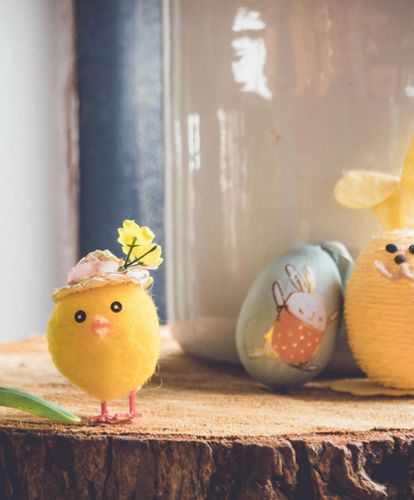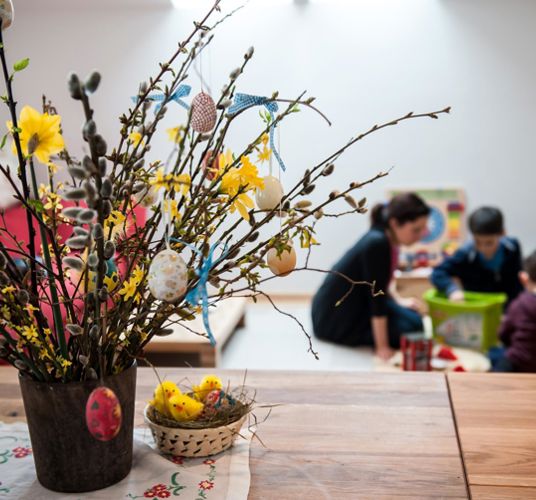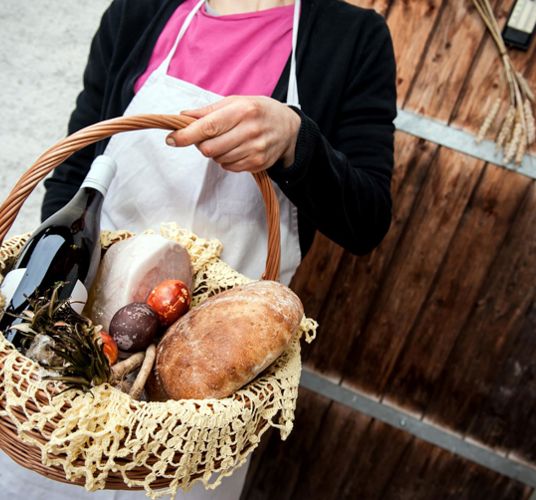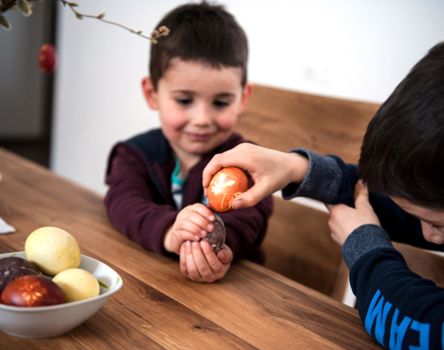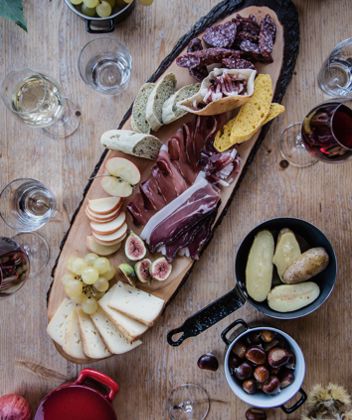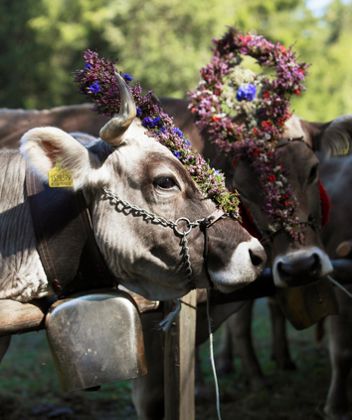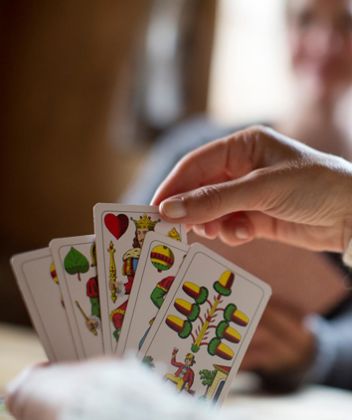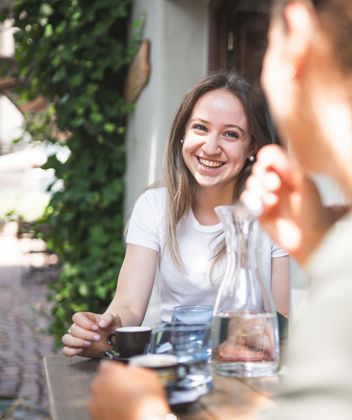Easter in South Tyrol
Easter traditions
Many customs are celebrated during the Easter period. The art of painting and exchanging eggs, hiding Easter eggs for children, and the tradition of the Easter nest are integral parts of this festive period.
On Palm Sunday (the Sunday before Easter), palm brooms are made, consisting of a long stick to which willow catkins, olive branches, flowers, colorful ribbons, and decorated Easter eggs are attached. And whoever gets up last on Palm Sunday is crowned palm donkey.
On Maundy Thursday, the traditional Easter eggs are dyed, which are then blessed in church on Easter Sunday, along with bread, Easter ham, and other delicacies. Onion skins and other natural products like beetroots, leaves, and herbs are often used for dyeing.
In our region, "Eierpecken" (egg tapping) is particularly popular. All that's needed for this Easter tradition is a hard-boiled Easter egg, an opponent, and a bit of luck. The player starts by tapping the tip of their own egg against the tip of the opponent's egg. The rounded sides of the eggs are then tapped against each other. The winner is the one whose egg remains intact at the end. Often, this tradition takes place on Easter Sunday after church.
At Easter, children receive from their godparents a sweet bread called Fochaz (a yeast bread) in different shapes such as rabbit or wreath as a gift.
On Palm Sunday (the Sunday before Easter), palm brooms are made, consisting of a long stick to which willow catkins, olive branches, flowers, colorful ribbons, and decorated Easter eggs are attached. And whoever gets up last on Palm Sunday is crowned palm donkey.
On Maundy Thursday, the traditional Easter eggs are dyed, which are then blessed in church on Easter Sunday, along with bread, Easter ham, and other delicacies. Onion skins and other natural products like beetroots, leaves, and herbs are often used for dyeing.
In our region, "Eierpecken" (egg tapping) is particularly popular. All that's needed for this Easter tradition is a hard-boiled Easter egg, an opponent, and a bit of luck. The player starts by tapping the tip of their own egg against the tip of the opponent's egg. The rounded sides of the eggs are then tapped against each other. The winner is the one whose egg remains intact at the end. Often, this tradition takes place on Easter Sunday after church.
At Easter, children receive from their godparents a sweet bread called Fochaz (a yeast bread) in different shapes such as rabbit or wreath as a gift.


